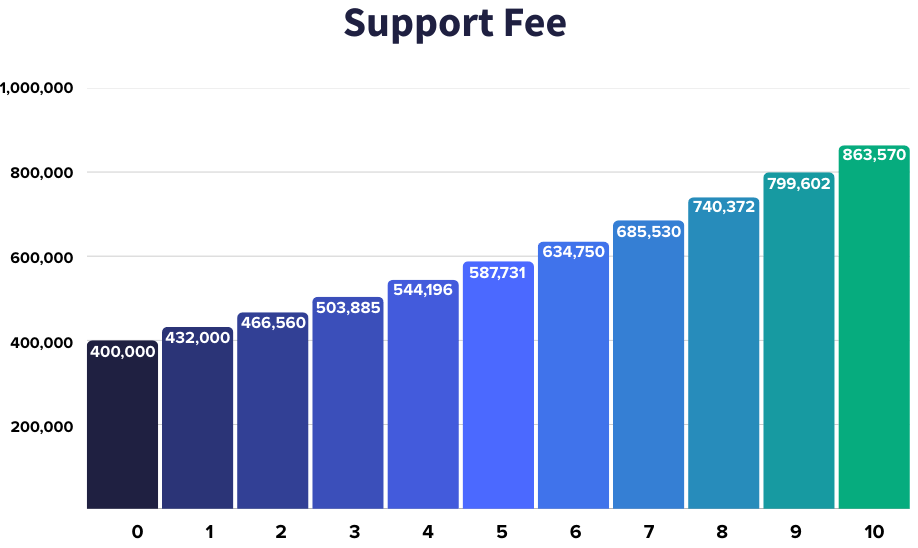Oracle’s Strategy Shift: The Hidden Cost Curve
Oracle audits may be fading but rising support costs and rigid contracts pose a new risk. Learn how to stay in control of your Oracle estate.
1. The Audit Era Is Over
For years, Oracle audits were a source of uncertainty and disruption for IT and procurement leaders. But recently, formal audit activity has dropped off significantly. Oracle has shifted its internal priorities: audit teams have been downsized, and attention has moved to OCI and AI growth. Audits have not disappeared entirely, but they are no longer the systemic revenue stream they once were.
2. The New Playbook: Inflexible Agreements
Instead of chasing down license compliance, Oracle is now focused on long-term commercial lock-in. Their strategy centers on tying customers to rigid support contracts, bundled entitlements, and auto-renewing subscriptions that are difficult and costly to unwind. Once you are in, you are paying year after year, with little transparency and even less flexibility.
3. The Cost Spiral You Did Not See Coming

Note: In recent years, Oracle has consistently raised support fees by 8% annually, but this has not always been the case. This example is a hypothetical projection to illustrate how costs could escalate over a 10-year period if similar increases were applied going forward.
The risk lies in the invisibility of this growth. Many organizations do not fully model the long-term cost implications, until it is too late.
4. The Shelfware Trap: When Reducing Support Leaves You Worse Off
Many Oracle customers assume they can reduce support costs by removing unused licenses. But Oracle’s policies make this far from straightforward.
Here is what often happens:
- A customer identifies licenses they no longer use and requests to drop support for them
- Oracle flags the original volume discount (e.g., 40%) applied to the license purchase and support agreement
- If the customer removes licenses, Oracle reserves the right to reprice the remaining licenses at full list price
To soften the blow, Oracle may offer a “compromise”:
Keep the current support fee, but for fewer licenses. The removed licenses become unsupported.
Result? You pay the same amount for less value. The dropped licenses are effectively deadweight. You cannot use them, and you have not reduced your spend. Worse still, annual support increases continue to apply.
It is a lose-lose situation: pay for shelfware or pay the same for a reduced license base.
5. How to Spot You’re Already Locked In
If you are not seeing audits but your Oracle spend is still climbing, you may already be locked in. Watch for these signs:
- Support costs are increasing despite no additional usage
- You are unable to drop specific licenses without repricing
- You have received compliance-sounding emails, but no formal audit letters
- Contract terms are bundled, rigid, or default to auto-renewal
6. What Forward-Thinking Organizations Are Doing
Smart Oracle customers are shifting their focus from audit defense to proactive cost management. That means:
- Forecasting long-term support costs under current and optimized scenarios
- Identifying unused or low-value licenses and planning structured exits
- Reviewing all contract terms for bundling, renewals, and exit clauses
- Exploring third-party support or hybrid models to break dependency
- Negotiating future contracts from a position of insight and independence
7. ITAA’s Role: Independent, Strategic, On Your Side
At ITAA, we help clients understand the full financial and contractual landscape and build a strategy that avoids unnecessary cost, complexity, and dependency. We do not sell licenses, and we do not profit from vendor-aligned services. Our only focus is your long-term control and commercial advantage.
If you are ready to rethink your Oracle position before the next three-year renewal cycle rolls around, we are ready to help.

Martijn Smit, Chief Revenue Officer CRO & Software Licensing Leader
Martijn has a proven track record in software licensing, with deep expertise in Oracle and Java. He helps organizations reduce compliance risks, optimize licensing costs, and turn complexity into strategic opportunity. Known for his clear communication and pragmatic approach, Martijn is a trusted advisor to CIOs and IT leaders navigating high-stakes licensing decisions. His collaborative style ensures tailored solutions that drive measurable business outcomes across diverse enterprise environments.



